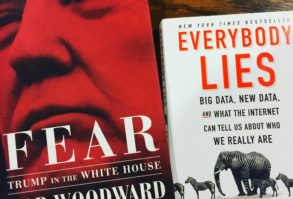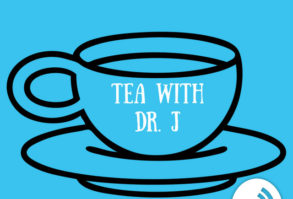The recent events at The University of Oklahoma and the Hillary Clinton emailgate controversy is a teaching moment for everyone who uses technology to communicate. Mobile technology creates a vague definition of what is public and what is private.
The screens we look at each day keeps us disconnected from what we know to be true; everything on the Internet lasts forever. The smartphones we carry around allows everyone to become accidental journalists. We now have the ability to broadcast the worst in people as well as hold public officials accountable to share private emails. The right for a public official to have a private email account seems fair, but the words public official and private email still create a nebulous area of debate. The Internet is a great venue to read the news, but the Internet is also packed with lies and inaccurate information, which then leads the public seeking other avenues for the truth. This means placing private individuals into the public spotlight and public officials not having the right to privacy.
Since social media is filled with noise, the public’s need for the truth rises, especially when broadcast news journalists such as Brian Williams is caught fibbing. Recently, Brian Williams fabricated a story about being in a military helicopter that was hit by sniper fire. When the public cannot trust journalists whose job it is to share factual news accounts, the public will seek out the truth and demand justice elsewhere, which usually results in a Twitter hashtag. Citizens are taking truth telling into their own hands, which also holds their smartphone.
As much as the truth matters, the First Amendment is sacred in upholding our democracy. The First Amendment protects citizen’s freedom of speech—which means the First Amendment also protects people who Twitter shame. The students at the University of Oklahoma, who chanted a racial song that they were taught in their fraternity, did not expect to be infamous media icons. Technology allows unexpected individuals to become news within minutes. Take for example Alex from Target. His picture circulated on the Internet without his knowledge. Even though Alex from Target’s viral picture turned out to be beneficial to him–it still borders on violating a person’s right not to choose to become a public figure. With that said, OU students who were chanting racial slurs knew their hateful words were wrong. The OU students learned the most important social media lesson: if a smart phone is present—expect that nothing is private. The second lesson is that there are consequences to a person’s words both online and offline. Just ask Justine Sacco who tweeted before her flight to South Africa, “Going to Africa. Hope I don’t get AIDS. Just kidding. I’m white!” When she arrived in South Africa she found herself Twitter shamed and without a job.
The difference between the OU fraternity students and Hillary Clinton’s emailgate is that the boys were not public figures. The OU students are known for what they said and not for who they are. As for Hillary Clinton, people criticize her for who she is: former First Lady, Senator, Secretary of State, and a 2016 United States Presidential candidate hopeful. Former Secretary Clinton used a private email account during her tenure at the State Department. Now her emails are being scrutinized and questioned: which emails are considered public and which emails are considered private. The State Department said Hillary Clinton made the decision about which emails were federal record because the federal government allows each federal employee to make their own decision which private emails are archived. The media frenzy is to be expected. Hillary Clinton is a public figure whose husband lied while President of the United States. While she campaigned for President in 2008, Hillary Clinton lied about walking off a plane in Bosnia to sniper fire when she was First Lady. Clinton should understand by now that the public wants transparency and the truth from their government officials. Clinton’s email controversy is more about her past experiences than the actual private emails. Even though citizens hold public officials more accountable for their computer-mediated communications, citizens must remember all emerging media means emerging policies. All new technology comes with a learning curve—even for the federal government.
Both the OU incident and the Hillary Clinton emailgate are teachable moments that challenge the definition of privacy. People’s most private thoughts could be hacked, recorded and sent into the public domain. College students who did not intend to become public figures need to realize that social media is a powerful public platform that can expose the truth. Moreover, public officials need to realize we hold them to a higher standard when they use a private email account during work hours. Public officials and private citizens who use technology need to realize there are consequences to their actions both online as well as offline. The ambiguous line between what is public and what is private is going to get even more ambiguous and messy. As long as there are screens–consider even the most private places public (yes, Hillary—even your private email account) because tomorrow you might become the next hashtag.



1 comments On Is it about What you Say or Who you Are?: Challenging the Public and Private sphere in the Digital Age
Pingback: Live from the Global Village: Live streaming with Value ()